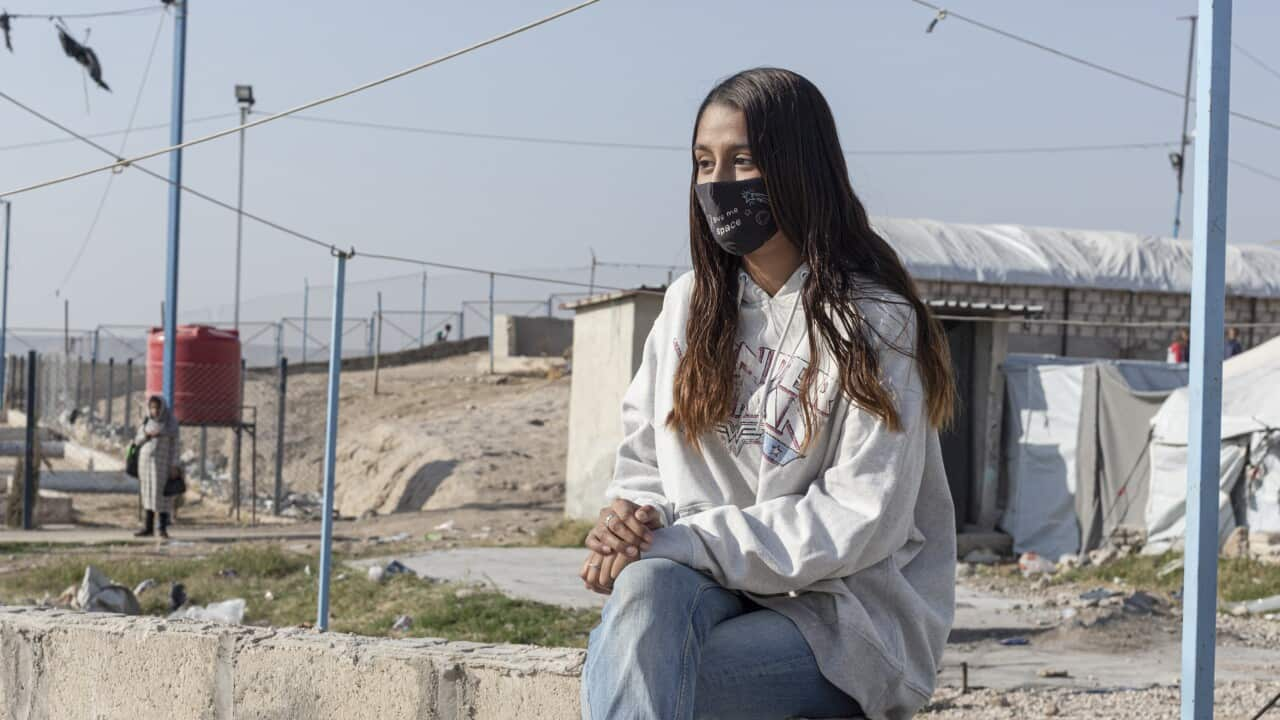Key Points
- Shamima Begum went to Syria as a schoolgirl to join the self-proclaimed Islamic State.
- The British government took away her citizenship shortly after she was found in a detention camp.
- Ms Begum argued the Home Office failed to investigate whether she was a "child victim of trafficking".
A British-born woman, who went to Syria as a schoolgirl to join the self-proclaimed Islamic State group (IS) lost her latest appeal against the removal of her British citizenship, but her lawyers vowed to keep fighting and said the case was "nowhere near over".
The British government took away Shamima Begum's citizenship on national security grounds in 2019, shortly after she was found in a detention camp in Syria.
Her latest appeal against that decision was dismissed on Wednesday by the Special Immigration Appeals Commission – a specialist tribunal that hears appeals against decisions to remove citizenship on national security grounds.
Speaking outside court, her lawyer Daniel Furner told reporters: "We will be challenging the decision."
Ms Begum would have to take the case directly to the Court of Appeal in London if she wishes to challenge the decision, according to legislation that covers the tribunal.
A spokesperson for Britain's interior ministry, the Home Office, welcomed the ruling.
"The government's priority remains maintaining the safety and security of the UK and we will robustly defend any decision made in doing so," the spokesperson added.
Ms Begum, who is currently being held in the al-Roj detention camp in north-eastern Syria, argued that the Home Office failed to investigate whether she was a "child victim of trafficking".
Judge Robert Jay found there was a "credible suspicion" that Ms Begum was trafficked to Syria for the purposes of "sexual exploitation".
He also said there were arguably "state failures" in relation to Ms Begum's journey from London to Syria via Turkey in 2015.

Shamima Begum joined the self-proclaimed Islamic State group as a teenager. Source: AAP
Ms Begum's lawyers had also argued that her entry into Syria was "facilitated by a Canadian agent" working for Islamic State – an allegation that first emerged in 2015.
The British government, which argued that assistance with travel was typical for many of those who went to Syria, said the agent had "played no role in encouraging Ms Begum to travel", according to the tribunal's ruling.
But Mr Jay said it was a "sensible inference" that any people who helped Begum and her friends travel to Syria were also encouraging them to make the journey.
'Downplaying of radicalisation'
Government lawyers argued that Ms Begum had aligned with the militant group and stayed in IS-held territory for four years until the collapse of the so-called caliphate in 2019.
A British intelligence officer gave evidence that it was “inconceivable” someone travelling to Syria in 2015 “would not know what (IS) was doing as a terrorist organisation.”
Mr Jay said in his ruling that the tribunal was concerned by the British domestic intelligence service MI5's "apparent downplaying of the significance of radicalisation and grooming."
"History, and sadly the present, is replete with examples of dictatorships attempting to manipulate their subject populations with propaganda and the like," he said.
"It is commonplace that they succeed."
Mr Jay said "reasonable people will profoundly disagree" with the Home Office's decision, but that it "raises wider societal and political questions" which were not for the tribunal.
Ms Begum's case has been the subject of a heated debate in Britain in recent years, between those who argue she willingly joined a terrorist group and others who emphasise she was a child when she left, or say she should face justice for any alleged crimes in Britain.
She left London in 2015 aged 15 and travelled with two school friends to Syria, where she married an IS fighter and gave birth to three children, all of whom died as infants.
Ms Begum, now 23, has been in the al-Roj camp since 2019, where thousands of foreign women and children remain.
Maya Foa, director of campaign group Reprieve, said in a statement that Britain's policy of revoking citizenship "remains unsustainable and badly out of step with security partners like the US".
"Britain is the only G20 country that strips citizenship in bulk and the last of our allies refusing to repatriate its nationals from north-east Syria," she added.
Repatriations of foreign women and children affiliated to IS from camps in north-east Syria of more than 500 in 2022, Kurdish authorities said in November.
Britain has repatriated 11 individuals since 2019, according to figures compiled by human rights organisation Rights and Security International.



